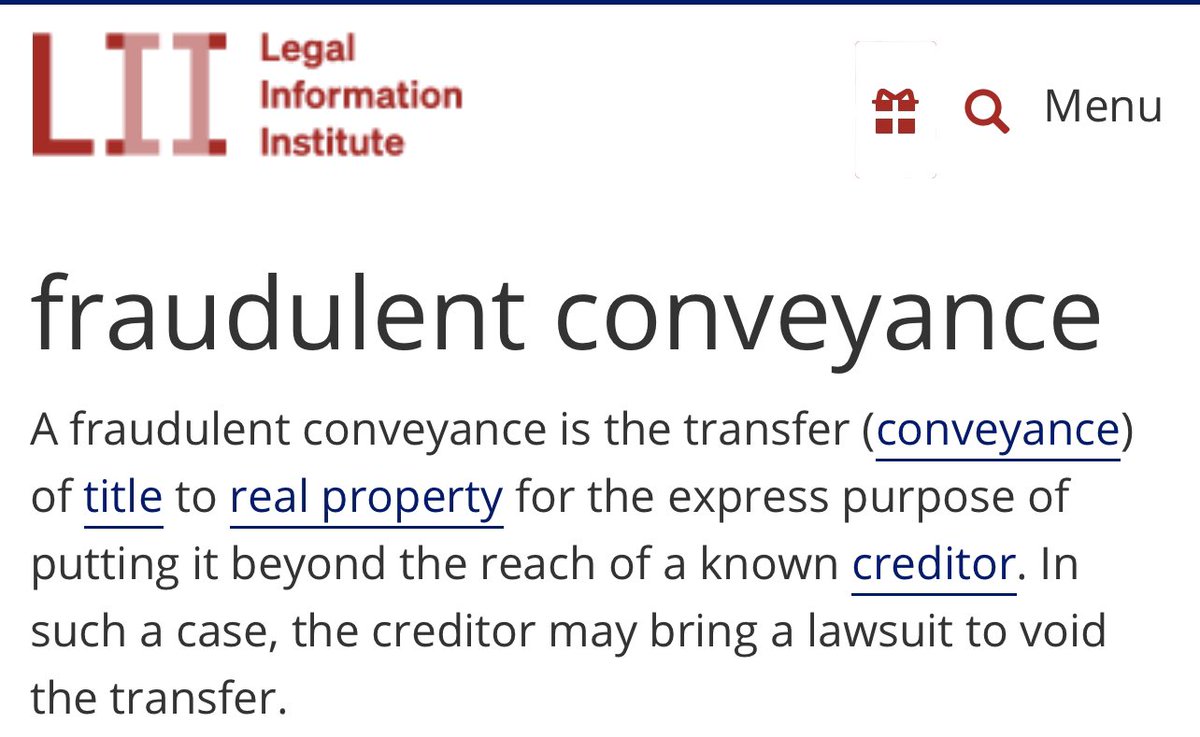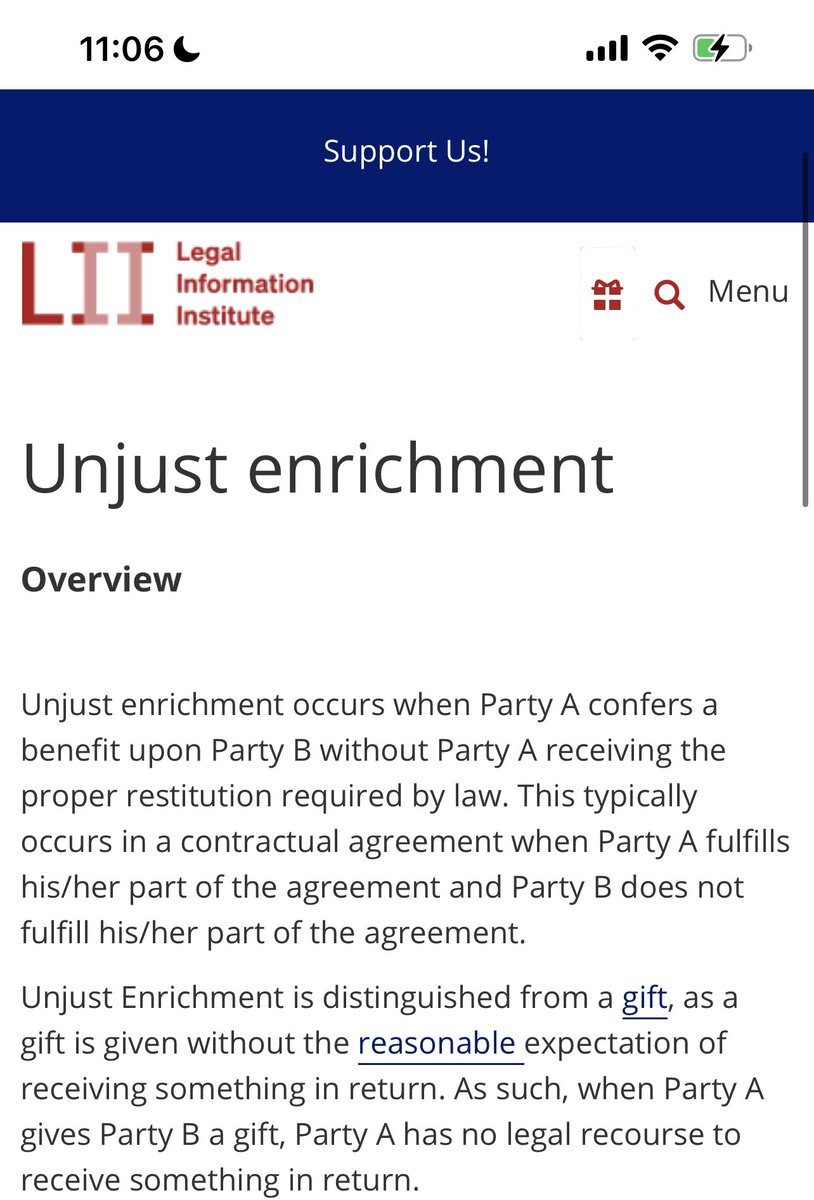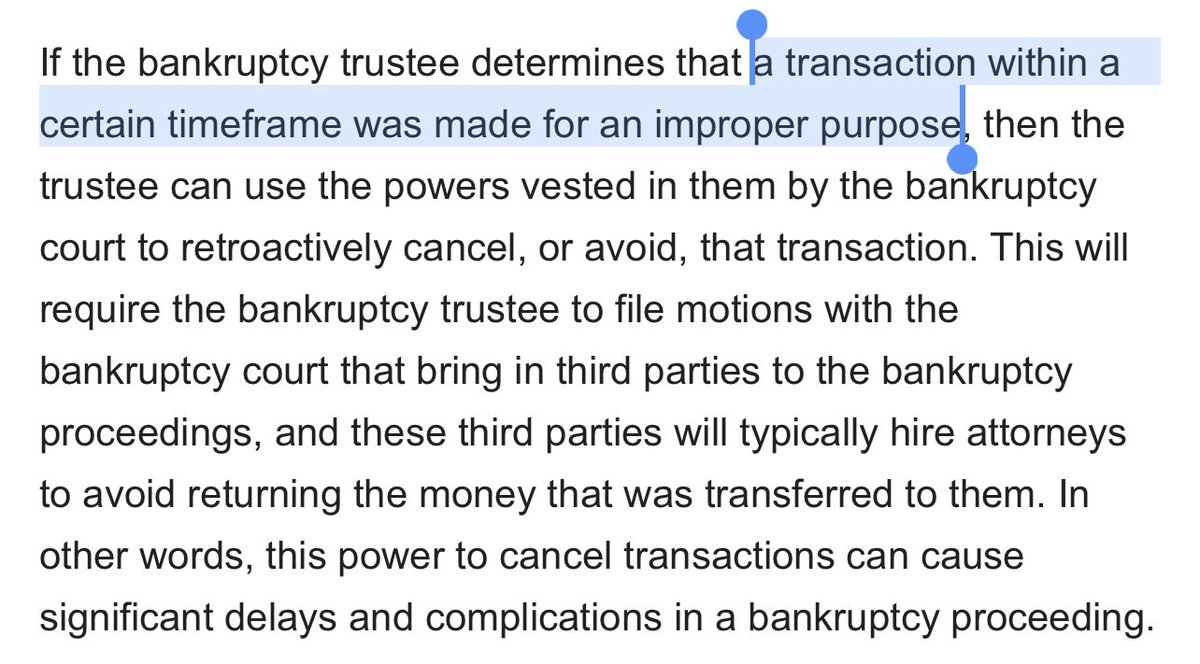
The net result of FTX is that billions of dollars was stolen from crypto investors to give to Democrat-aligned politicians, nonprofits, and journalists.
This is why there may be no prosecution.
This is why there may be no prosecution.
Why is SBF so protected?
Why is everyone from SEC to NYT running interference for him?
He was basically Soros junior — just with stolen customer money — and evidently bought off the entire media, nonprofit, political, and regulatory establishment.
archive.ph/HYdcM
Why is everyone from SEC to NYT running interference for him?
He was basically Soros junior — just with stolen customer money — and evidently bought off the entire media, nonprofit, political, and regulatory establishment.
archive.ph/HYdcM
The author is a born-rich journo. So he knows Bankman-Fried’s milieu.
And the overall picture you get is of rats scurrying around now that SBF’s money has been cut off — and very much not wanting defrauded crypto investors to clawback those stolen funds.
archive.ph/HYdcM
And the overall picture you get is of rats scurrying around now that SBF’s money has been cut off — and very much not wanting defrauded crypto investors to clawback those stolen funds.
archive.ph/HYdcM

The stage is set for an absolutely insane zero-sum match.
On one side, one million crypto investors robbed of ten billion dollars by SBF.
On the other side, a network of dark money Democrats who will fight to keep as much of those stolen funds as possible.
The fur will fly.
On one side, one million crypto investors robbed of ten billion dollars by SBF.
On the other side, a network of dark money Democrats who will fight to keep as much of those stolen funds as possible.
The fur will fly.
The bankruptcy case may play out on social media.
Crypto investors seeking to get FTX funds back may hire lawyers like Irving Picard, who clawed back ~75 cents on the dollar for Madoff victims.
And who would they claw it back from? The groups SBF funded.
archive.ph/Uzsos
Crypto investors seeking to get FTX funds back may hire lawyers like Irving Picard, who clawed back ~75 cents on the dollar for Madoff victims.
And who would they claw it back from? The groups SBF funded.
archive.ph/Uzsos

The fundamental question is: when did SBF start stealing from customers, and how much did he steal?
This can only be answered by forensic accounting.
The headline amount given to Democrat politicians of $37M+ understates it. FTX Foundation alone was $190M.
How much was stolen?
This can only be answered by forensic accounting.
The headline amount given to Democrat politicians of $37M+ understates it. FTX Foundation alone was $190M.
How much was stolen?

We need a list of all the “donations” SBF made, potentially with stolen money. Here are at least four:
- $69M in political donations, mostly to Democrats, some to Republicans via his subordinate
- $190M to a foundation
- $128M to a PAC
- Undisclosed amount (!)
There’s more…



- $69M in political donations, mostly to Democrats, some to Republicans via his subordinate
- $190M to a foundation
- $128M to a PAC
- Undisclosed amount (!)
There’s more…




All kinds of obfuscation games have been played here. Donations made with possibly stolen funds. Numbers that are publicly known may just be the tip of the iceberg.
Where did the ten billion go? How much was stolen? And when was it stolen?

Where did the ten billion go? How much was stolen? And when was it stolen?


The Crypto Clawback
Anyone with money on FTX may want to learn the following terms:
- clawback
- lookback
- fraudulent conveyance
- unjust enrichment
- voidable preference
Ask a lawyer. You may be able to recover funds by pursuing the organizations SBF “donated” your money to.



Anyone with money on FTX may want to learn the following terms:
- clawback
- lookback
- fraudulent conveyance
- unjust enrichment
- voidable preference
Ask a lawyer. You may be able to recover funds by pursuing the organizations SBF “donated” your money to.




This is why the establishment has been so muted on SBF!
It’s because one million crypto investors might clawback billions of dollars, by pursuing the many nonprofits, politicians, and media corporations SBF “donated” their money to.



It’s because one million crypto investors might clawback billions of dollars, by pursuing the many nonprofits, politicians, and media corporations SBF “donated” their money to.




Ask a lawyer. If FTX stole your money, you may be able to sell your bankruptcy claim.
An investor might buy claims for X cents on the dollar, taking on the risk of getting Y>X at a future date.
For $10B, many groups SBF “donated” to could be pursued. lowenstein.com/media/6418/nat…
An investor might buy claims for X cents on the dollar, taking on the risk of getting Y>X at a future date.
For $10B, many groups SBF “donated” to could be pursued. lowenstein.com/media/6418/nat…

• • •
Missing some Tweet in this thread? You can try to
force a refresh












